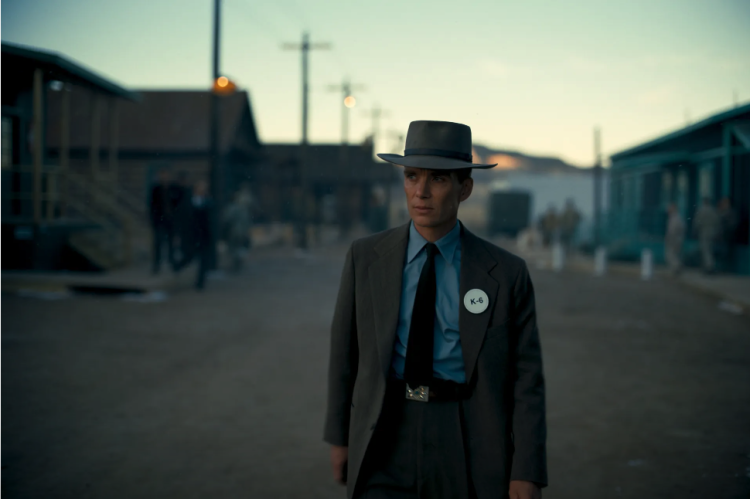Oppenheimer: A Cinematic Exploration of the Father of the Atomic Bomb

biography “American Prometheus: The Triumph and Tragedy of J. Robert Oppenheimer” by Kai Bird and Martin J. Sherwin, the film delves into the complex life of J. Robert Oppenheimer, a theoretical physicist often referred to as the “father of the atomic bomb.” The film not only narrates Oppenheimer’s pivotal role in the Manhattan Project during World War II but also explores the moral and ethical dilemmas that accompany scientific advancement.
In this article, we will analyze various aspects of the film, including its historical context, character development, cinematography, themes, and its impact on contemporary discourse about science and morality.
Historical Context
To fully appreciate “Oppenheimer,” it’s essential to understand the historical backdrop of the film. The Manhattan Project was a secret U.S. government research project during World War II aimed at developing nuclear weapons. This ambitious undertaking was primarily in response to fears that Nazi Germany was working on its own atomic bomb. Led by Oppenheimer, the project culminated in the first successful atomic bomb test on July 16, 1945, in New Mexico, an event known as the Trinity Test.
The film portrays a time when science was advancing at an unprecedented pace, offering humanity tools that could either protect or annihilate. This duality reflects the tension that permeates the narrative of “Oppenheimer.” The film also captures the shifting public sentiment regarding the bomb post-war, particularly during the Cold War era, which saw nuclear arms races and the fear of mutually assured destruction.
Character Development
At the heart of “Oppenheimer” is its complex protagonist, J. Robert Oppenheimer, portrayed brilliantly by Cillian Murphy. The film takes us through his evolution from an ambitious scientist to a man haunted by the consequences of his actions.
Oppenheimer’s Inner Conflict
Oppenheimer is depicted as a deeply introspective character, torn between his passion for science and the ethical implications of his work. He famously quoted the Hindu scripture, the Bhagavad Gita, upon witnessing the bomb’s detonation: “Now I am become Death, the destroyer of worlds.” This moment encapsulates his internal struggle—while he achieved a monumental scientific breakthrough, he was acutely aware of its potential for devastation.
Supporting Characters
The film also shines in its portrayal of supporting characters, each of whom contributes to Oppenheimer’s journey. His relationships with figures like General Leslie Groves (played by Matt Damon), who oversees the Manhattan Project, and fellow scientists such as Edward Teller (Benny Safdie) and Enrico Fermi (Danny Deferrari) add depth to the narrative.
Furthermore, Oppenheimer’s personal life, including his tumultuous relationship with his wife, Kitty (Emily Blunt), reveals how the pressures of his work affected his family dynamics. These interpersonal conflicts humanize Oppenheimer and provide a broader perspective on the sacrifices made by those involved in the project.
Cinematography and Direction
Nolan’s direction is masterful, employing a non-linear narrative that keeps viewers engaged while reflecting the fragmented nature of Oppenheimer’s thoughts and memories. The film’s cinematography, helmed by Hoyte van Hoytema, captures both the beauty and the horror of the era.
Visual Symbolism
One striking aspect of the cinematography is the use of light and shadow. The scenes depicting the atomic bomb’s creation are bright and vivid, juxtaposed with darker, more somber moments that reflect Oppenheimer’s inner turmoil. The visual symbolism of light and darkness serves to highlight the duality of scientific discovery—the brilliance of human intellect against the backdrop of potential destruction.
Sound Design and Score
The sound design, coupled with Ludwig Göransson’s haunting score, enhances the film’s emotional weight. The score oscillates between tension-filled crescendos during moments of scientific breakthroughs and softer, reflective melodies that accompany Oppenheimer’s personal struggles. This interplay of sound and visuals elevates the cinematic experience, immersing the audience in Oppenheimer’s world.
Themes and Ethical Dilemmas
One of the most compelling aspects of “Oppenheimer” is its exploration of themes related to science, ethics, and responsibility.
The Burden of Knowledge
The film grapples with the notion of the “burden of knowledge.” Oppenheimer’s realization of the destructive power he has unleashed leads him to question the morality of scientific advancement. As he navigates the post-war landscape, he becomes increasingly aware of the implications of his work on future generations.
Science vs. Morality
“Nolan raises profound questions about the role of scientists in society. Are they merely facilitators of progress, or do they bear responsibility for the consequences of their discoveries? This theme resonates strongly in today’s context, as advancements in technology, such as artificial intelligence and genetic engineering, raise similar ethical dilemmas.
Legacy and Remorse
The film does not shy away from portraying Oppenheimer’s remorse as he grapples with his legacy. His post-war advocacy against nuclear proliferation and his eventual estrangement from the scientific community reveal a man deeply affected by his choices. This aspect of his character adds a layer of complexity, challenging the audience to consider the implications of scientific achievements that can lead to both progress and peril.
Reception and Impact
“Oppenheimer” has garnered critical acclaim, with many praising its direction, performances, and thematic depth. It has sparked discussions about the ethical responsibilities of scientists and the moral implications of technological advancements.
Cultural Relevance
In an era where discussions about climate change, biotechnology, and artificial intelligence dominate the discourse, “Oppenheimer” serves as a timely reminder of the ethical dilemmas that accompany scientific progress. The film’s exploration of the consequences of Oppenheimer’s actions encourages viewers to reflect on their own relationship with technology and the responsibilities that come with it.
Conclusion
In conclusion, Christopher Nolan’s “Oppenheimer” is more than just a biopic; it is a profound exploration of the moral complexities surrounding scientific advancement. Through its rich character development, stunning cinematography, and thought-provoking themes, the film challenges audiences to confront the duality of progress and destruction.





